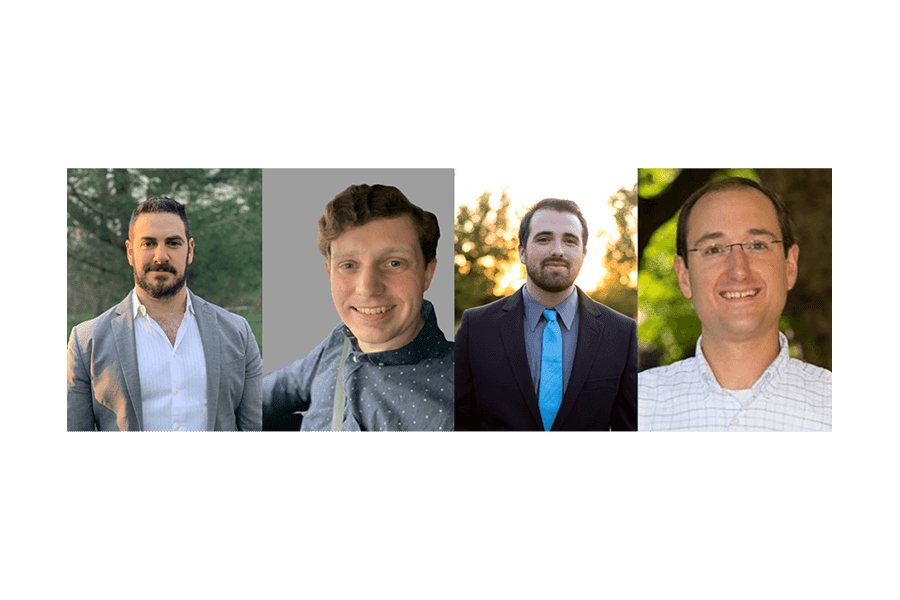America in the World Consortium Announces 4 Pre- and Postdoctoral Fellows for 2021-2022

The America in the World Consortium has recently announced its 2021-2022 cohort of Pre- and Postdoctoral Fellows. Established in 2018, the America in the World Consortium (AWC) seeks to enhance policymaking and better prepare the next generation to confront geopolitical challenges and advance American national interests abroad. A partnership among the Henry A. Kissinger Center for Global Affairs at the School of Advanced International Studies at Johns Hopkins University, Duke University, and the University of Texas at Austin, the Consortium provides pre- and postdoctoral fellows yearlong appointments to engage in cutting-edge research in Washington, D.C. Fellows contribute to the intellectual life of the Consortium and participate in its programming, in addition to pursuing their own research and writing, from July 2021 to July 2022. Three fellows will be based at the School of Advanced International Studies (SAIS) at Johns Hopkins University, where they will engage with the Kissinger Center and broader SAIS community.
The 2021-22 America in the World Consortium Pre- and Postdoctoral Fellows at Johns Hopkins University
Dr. Tyler Bowen is a Postdoctoral Fellow in the America in the World Consortium, focusing on how nuclear weapons affect U.S. foreign policy. His dissertation, entitled, "The Logic of Escalation and the Benefits of Conventional Superiority in the Nuclear Age," explains how nuclear weapons shape the benefits of conventional military superiority for the United States and other great powers. He received his Ph. D. in Political Science from Yale University in 2021, and he most recently worked as a Stanton Nuclear Security Predoctoral Fellow at MIT in 2020-21. His other research projects examine questions of public opinion around nuclear use, the nature of nuclear superiority, the sources of deterrence failure, and the utility of military strikes against nascent nuclear programs.
Daniel Chardell is an America in the World Consortium Predoctoral Fellow and a Ph.D. candidate in the History Department at Harvard University, where his research focuses on twentieth-century U.S. foreign relations, the Middle East, and the Cold War. Drawing on U.S. archives and Arabic-language materials, his dissertation uses the Gulf War of 1991 as a lens through which to explore contending American and Arab visions of post-Cold War Middle Eastern order. Alongside his studies, he worked as a research assistant at Harvard Kennedy School’s Belfer Center. Prior to Harvard, he was a research associate at the Council on Foreign Relations. He holds a BA in history from the University of Michigan.
John Gleb is an America in the World Consortium Predoctoral Fellow and a doctoral candidate in the Department of History at the University of Texas (UT) at Austin, where he earned his MA in May 2020. John received his BA at the University of California, Berkeley, from which he graduated with High Honors and Highest Distinction in 2017. At UT, he is a Graduate Student Fellow at the Clements Center for National Security and has appeared as a guest on The Slavic Connexion, a podcast affiliated with the Department of Slavic and Eurasian Studies. He is also fluent in French. John’s research focuses on the rise of the American national security state and on the relationship between foreign and domestic politics in the United States. He is especially interested in the concept of political consensus, a yearning for which has decisively shaped the worldview and activities of American foreign policymakers since the turn of the twentieth century. John’s dissertation will examine attempts to forge a foreign policy consensus both inside and outside the halls of government between 1900 and 1950. Thanks to those early consensus-building campaigns, the national security state that emerged during the Cold War would consist of more than just a cluster of institutions: as John will show, it also encompassed (and continues to encompass) a system of shared values and ideas from which those institutions had to draw power in order to compensate for their formal weakness.
Andy Goodhart is an America in the World Predoctoral Fellow and a Ph.D. candidate in Political Science at Ohio State University. His primary research interest is the relationship between international order and conflict. Andy’s dissertation explains how hegemons select legitimation strategies and the effect these strategies have on order durability. These powerful states face a tradeoff between maximizing the size of their orders and ensuring their durability. Andy is a member of Ohio State’s MESO Lab (Modeling Emergent Social Order) which uses computational modeling to understand the relationship between international order and conflict. He also uses survey experiments to understand public opinion about foreign policy. One current project investigates the sources of opposition to global governance while another asks why the public supports foreign policy interventions that are unlikely to succeed. Prior to graduate school, Andy served as a Defense Strategist in the Office of the Secretary of Defense. In that role, he focused on international order, great power competition, and "gray zone" conflict. He is a native of Ohio